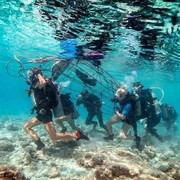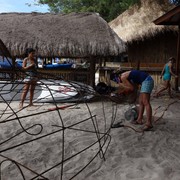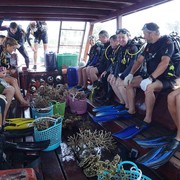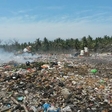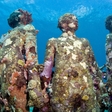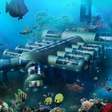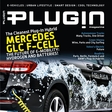
If you are an eco-conscious world traveller, one of the must-see destinations are the Gili Islands. This amazingly beautiful corner of the Earth needs your help - volunteer to help and learn all about coral ecology and the importance of coral reefs in the marine environment!
Wondering how you might contribute as a volunteer? By joining the local Biorock workshops, volunteers are trained by experts of coral restoration, professionals and teachers, to learn the most important things about the coral reefs protection by using the Biorock technology. While diving around the world's largest concentration of Biorock reef structures, volunteers – among other things – learn how to identify broken, overturned live corals as well as how to safely pick up heavy corals and to find suitable substrate to transplant onto for the coral to attach to once overturned and secured.
What is Biorock, you wonder? A technology called the Biorock process is used to regenerate coral reefs, re-populate damage reefs from coral and fish, break the wave action, grow beaches, etc... It uses low voltage direct currents (above 1.2 Volts) going through a steel structure. The Biorock process also called electrolysis (posing no threat to humans or marine life) is happening between 2 metals receiving electricity in sea water, resulting in a steel structure to grow solid limestone minerals (the best substrate for hard coral) and the other metal to slowly disintegrate. Biorock structures can be of any size and shape and can be grown hundreds of miles long, providing there was sufficient funding to do so.
According to the Gili Eco Trust, "hard corals on a Biorock structure can grow 2-6 times faster than in natural conditions, the corals on the Biorock reef are exceptionally bright coloured and densely branched, heal from physical damage at least 20 times faster, have up to 50 times higher survival rate from the most severe high temperature bleaching events, and show rates of new coral growth higher than any previously recorded data."
"Thanks to this project, we've been able to build over 100 biorocks around the three Gili Islands, Tugu Hotel in North Lombok and in Senggigi Bay. For this project we've been awarded the National Energy Globe Indonesia award," Danica Badovinac, volunteer at the Gili Eco Trust and organiser of the Music against rubbish festival (that will take place on the island in October) told Plugin Magazine.
